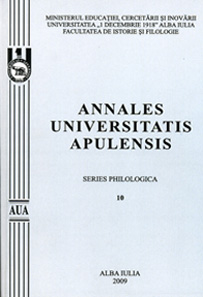Transdisciplinarity – An Intrinsic Feature of Teaching ESP
Transdisciplinarity – An Intrinsic Feature of Teaching ESP
Author(s): Daciana IndoleanSubject(s): Foreign languages learning
Published by: Universitatea »1 Decembrie 1918« Alba Iulia
Keywords: ESP; teaching ESP; assessing ESP; engineers’ professional environment; transdisciplinary syllabus
Summary/Abstract: Is transdisciplinarity a fashionable trend of the decade or is it an acute necessity of modern times? Can we speak of transdisciplinarity in relation to teaching English for specific purposes? These are the interrogations that led us to perform a research study on English for future engineers. Now more than ever science and technology do not belong to a single ethnic or national community. The scientific discoveries and technological progress are everywhere, saving lives and improving the quality of life. Science and technology no longer communicate solely through their specific universal language – Mathematics – like they did in the past, as science and technology no longer belong to the intellectual elite of humanity. Science and technology have become an integrated part of our daily lives. In the outpost of these scientific discoveries and technological progress we find the engineers, those contemporary people who, now more than ever, dedicate their professional lives to making this world a bit cleaner, less polluted, with technologies that treat and improve nature, the human body, the environment. Communicating these new discoveries to the world is done through the same means that gives birth to literature and that creates cultural bridges between nations and continents. In this new communicational environment, engineers do not communicate solely with their counterparts or peers using the specific language of science and technology, rather they must communicate with the entire community, since the entire community is the beneficiary of their work. This new context forces the engineers to become not only very good professionals, but also very good communicators (Weichert 2001). As the name suggests, English taught and learnt for specific purposes should meet the demands of a certain profession or group of professions and should focus on the communicational needs of the learners. Thus, English taught to future engineers should meet the communicational needs of the professional environment in which engineers work. In order to identify the communicational needs of engineers in the industrial and commercial professional environment, we have created a questionnaire which was administered to a sample of engineers working for various companies in the commercial and industrial area of Cluj Napoca.The results of this questionnaire are presented in this paper and they show that communications in English play an important part in the professional life of the engineers and that the communicational events found in their professional environment require the English teacher to adapt the English teaching methodology so that technical students become better trained for the future career.
Journal: Annales Universitatis Apulensis. Series Philologica
- Issue Year: 11/2010
- Issue No: 2
- Page Range: 285-299
- Page Count: 15
- Language: English

